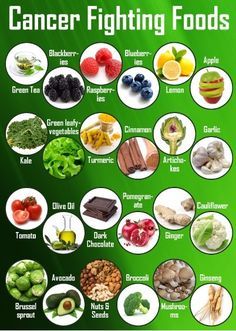
Diagnosed with Cancer? Your two greatest challenges are understanding cancer and understanding possible side effects from chemo and radiation. Knowledge is Power!
Learn about conventional, complementary, and integrative therapies.
Dealing with treatment side effects? Learn about evidence-based therapies to alleviate your symptoms.
Click the orange button to the right to learn more.
- You are here:
- Home »
- Blog »
- Newly Diagnosed »
- Lobular Breast Cancer Treatment
Lobular Breast Cancer Treatment

“To conclude, a large body of evidence is accumulating suggesting that VitC, when administered intravenously and in high doses, has potent cancer-selective cytotoxic, cancer-therapy sensitizing and toxicity-reducing properties.”
From: Sharon
Subject: Lobular breast cancer
Dear David-
I was diagnosed April 27 2015. I am treating with 100g vit c Iv, vit b17, diet, etc.
Do you have any other suggestions?
Have you know anyone who beat cancer without conventional medicine?
Sharon
Also, intravenous vitamin C therapy has shown real efficacy for cytotoxicity to cancers. I think I.V. vitamin c is an excellent alternative cancer therapy.
- Cancer Survivor
- Cancer Coach
- Director PeopleBeatingCancer
Recommended Reading:
High-dose intravenous vitamin C, a promising multi-targeting agent in the treatment of cancer
“Mounting evidence indicates that vitamin C has the potential to be a potent anti-cancer agent when administered intravenously and in high doses (high-dose IVC). Early phase clinical trials have confirmed safety and indicated efficacy of IVC in eradicating tumour cells of various cancer types.
In recent years, the multi-targeting effects of vitamin C were unravelled, demonstrating a role as cancer-specific, pro-oxidative cytotoxic agent, anti-cancer epigenetic regulator and immune modulator, reversing epithelial-to-mesenchymal transition, inhibiting hypoxia and oncogenic kinase signalling and boosting immune response.
Moreover, high-dose IVC is powerful as an adjuvant treatment for cancer, acting synergistically with many standard (chemo-) therapies, as well as a method for mitigating the toxic side-effects of chemotherapy.
Despite the rationale and ample evidence, strong clinical data and phase III studies are lacking. Therefore, there is a need for more extensive awareness of the use of this highly promising, non-toxic cancer treatment in the clinical setting.
In this review, we provide an elaborate overview of pre-clinical and clinical studies using high-dose IVC as anti-cancer agent, as well as a detailed evaluation of the main known molecular mechanisms involved. A special focus is put on global molecular profiling studies in this respect. In addition, an outlook on future implications of high-dose vitamin C in cancer treatment is presented and recommendations for further research are discussed…
To conclude, a large body of evidence is accumulating suggesting that VitC, when administered intravenously and in high doses, has potent cancer-selective cytotoxic, cancer-therapy sensitizing and toxicity-reducing properties.
High-dose VitC therefore has the potential to expand the therapeutic range of radio-, chemo- and targeted therapies as well as their efficacy. In addition, a wide variety of cancer patients may benefit from the expanded therapeutic scope of immune checkpoint inhibitors by high-dose VitC. Despite this fact, low accrual remains to hamper further clinical examination, most often because the drug combination in question is no longer standard of care while the study is ongoing. Importantly, this is the case even though the assessment of these combinations may still be highly clinically relevant. Fortunately, future clinical studies combining high-dose VitC with immunotherapy may not face this problem, considering the current high interest in this treatment modality and the need to overcome its current limitations.
Considering how the implementation of high-dose VitC may be a breakthrough in the treatment of cancer patients with poor prognosis and few available treatment options, it is fair to conclude that further clinical examination of this promising and non-toxic cancer treatment modality is not only warranted, but is in fact highly needed.

